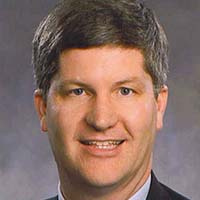Wisconsin RICO Act Lawyer List
Sponsored Law Firm
-
 x
x

Click For More Info:
-
The Law Offices of Richard L. Cooper, P.A.
848 Brickell Avenue Suite 800 Miami, FL 33131» view mapDWI/DUI, Drug Trafficking, Felony Nationally Ranked Top 40 Under 40
With Richard L. Cooper you can expect a trusted confidant who will work diligently to fully understand your case and determine a road map to help you regain control of your life.
800-756-2781
David M. Stegall
✓ VERIFIEDDavid M. Stegall is a shareholder at Lawton & Cates who was admitted to the Wisconsin Bar in 2006 after graduating cum laude from Marquette University... (more)
Peter C. Lloyd
✓ VERIFIEDAttorney Peter Lloyd is an experienced lawyer practicing law in the Central Wisconsin area. He limits his practice to specific areas (family, criminal... (more)
Christin Marie Saint Pierre
✓ VERIFIEDChristin Saint Pierre is a practicing lawyer in the state if Wisconsin handling criminal matters.
Franklyn M. Gimbel
✓ VERIFIEDFranklyn M. Gimbel founded Gimbel, Reilly, Guerin & Brown, LLP after serving as an Assistant United States Attorney from 1963 through 1968. His exper... (more)
Thomas J. McClure
✓ VERIFIEDAttorney McClure has a general practice serving individuals, families, and small businesses. Early in his career Attorney McClure gained valuable expe... (more)
Paul Bucher
✓ VERIFIEDMr. Bucher has been practicing law in Wisconsin since 1981. His area of practice includes complex litigation, criminal defense, personal injury, gover... (more)
Michael F. Torphy
✓ VERIFIEDMichael F. Torphy is a practicing lawyer in the state of Wisconsin. Mr. Torphy received his J.D. from the University of Wisconsin School of Law in 199... (more)
Peter M. Wolff
Attorney Peter M. Wolff is a managing partner at Bucher, Wolff & Sonderhouse, LLP that focuses on criminal defense and family law. Before Peter was a ... (more)
David D Patton
✓ VERIFIEDA versatile, innovative, and adaptable attorney with an attitude of service and broad experience who meets challenges with open-eyed optimism and solu... (more)

 Richard L. Cooper Miami, FL
Richard L. Cooper Miami, FL AboutMiami Attorney at Law
AboutMiami Attorney at Law ServicesCriminal Defense
ServicesCriminal Defense










